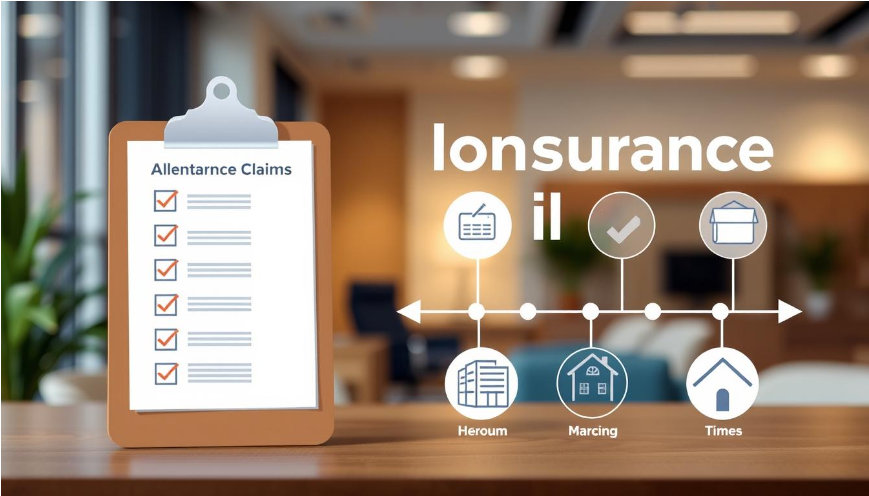For most of small business owners, dealing with the issues of insurance presents additional complexity. Small business insurance is also one of the components of risk management and is aimed at shielding the businesses from an array of potential perils that can threaten their operations, their finances and their viability. This article presents in detail the concept of small business insurance, its several types and the very best and cheapest available policies and what should be paid attention to when preparing to buy such insurance.
What is Small Business Insurance?
Small business insurance is a catchall term that refers to several insurance coverages that are used to protect a business against numerous risks. Such perils include damage to the property, lawsuits, worker’s compensation risks among others. In a nutshell, small business insurance serves like an insurance of sorts, giving business owners a sense of security against unforeseen catastrophes.
Why is Small Business Insurance Important?
There is a lot to lose for small business owners. They are different from big corporations since small businesses frequently lack adequate working capital and other assets. Without sufficient coverage, one lead for example a lawsuit or a natural disaster can expose the business in a financial sense to unsustainable losses. Risks can be transferred from the business with insurance coverage which offsets costs that may arise out of damages and lawsuits and other liabilities hence enabling the business to continue.
Types of Small Business Insurance
1. Small Business Liability Insurance
One of the most important forms of coverage is small business liability insurance. This will cover the business in instances where claims have been made about negligence, caused injuries or damage to properties during business operations. The key types include:
- General Liability Insurance: This includes coverage for bodily injury to third parties, damage to third party property and promoting wrongfully other persons business operations. As an example, the general liability policy provides reimbursement for the customer’s medical expenses and potential legal costs if a visitor suffers injuries such as slipping and falling while in your store.
- Professional Liability Insurance: Many people call it ‘E&O’ or ‘Errors and Omissions’ Insurance but this insurance is particularly important for all businesses that are engaged in providing professional services of whatever nature. It covers the loss which results from errors, negligence or failure to perform the service as promised. For instance, when a client decides to sue a consultant who did not produce the results promised within a specific project timeline, the professional liability insurance can pay to defend the surplus.
2.Property Insurance
Property insurance caters for damages on tangible business activities mainly characterized by its assets. These typically include buildings, equipment, inventory and furniture. The coverage also encourages damages covering events like fire, theft, vandalism and even natural disasters.
Commercial Property Insurance: This extends to cover the buildings or other structured buildings and flows of business sensitive apparatus in there. For example, the same help will be provided for commercial property insurance if your buildings and equipment are destroyed by fire.
Business Interruption Insurance: Mostly in combination with property insurance, business interruption insurance compensates the loss of income due to the cessation of business activity owing to certain factors. Such as a natural calamity or an event that causes an enormous property loss. It ensures that, even when your operations come to a halt, you can still afford to take care of some obligations. For example, paying salaries, rent and so on.
3.Workers’ compensation Insurance
Workers’ compensation insurance is an insurance system that is compulsory in many jurisdictions that compensate employees who sustain injuries or sickness while at work. It includes the payment of present medical costs, the cost of treatment and rehabilitation of work-injured persons and lost income because of injury on duty.
Coverage Details: This insurance assists in the treatment by paying for healthcare expenses as well as income replacements paid to the policyholder during the recuperation phase. It further shields corporate proprietors against actions originating from harming events that happen on the job.
4.Cyber Liability Insurance
There are many elements that should be pointed out with the growing tendency of digitalization. One of the most essential elements is cyber liability insurance. It safeguards companies from mettant en perilisme,使いかえ.損失と言う.
Coverage Details: This servicing includes the above costs like data breach notification related expenses, legal billings and loss of business income attributable to the caused by the cyber events. For example, if a hacker breaks into your customer database and damages the business operation, the cost caused will be covered by cyber liability insurance.
5.Health Insurance for Employees
The employee benefits that comprise health insurance are typically not recognized under conventional small business insurance and regional metropolitan but are recognized as part of an insurance policy strategy. It assists in the retention and recruitment of professions as well as guarantees that employees are afforded timely medical care.
Types of Health Insurance Plans: Some of these health insurance plans include Health Maintenance Organization (HMO) plans, Preferred Provider Organization (PPO) plans and High Deductible Health Plans (HDHPs). They all vary in the amount of coverage, costs and provider networks.
Finding the Best Small Business Insurance How to Choose the Best Small Business Insurance
Choosing the most appropriate small business insurance demands that you evaluate the nature of the operations and the characteristics of the business in depth.
Here are key considerations:
- Identify Risks: Identify the particular risks that are unique to your industry and operations. For instance, a contractor’s business may have more liability risks compared to an IT firm.
- Evaluate Coverage Needs: On the basis of the risks identified, establish what risk coverage, if any, can be provided to the business. Ascertain that the policies chosen satisfactorily address all possible risks and losses.
- Consult with Experts: You may also need to hire an insurance broker or advisor who concentrates in providing such services to small business owners. The adviser will assist you in coming up with a policy that suits your business.
Comparing Small Business Insurance Quotes
Obtaining multiple small business insurance quotes is essential for finding the best coverage at the most competitive rates.
Here’s how to go about it:
- Gather Information: Make sure each carrier collects the same information to quote the business accurately. This would be about the business size, industry, location and history of the claims made.
- Review Policy Details:Look beyond the price of policy premiums, examine policy limits, exclusions and deductibles as well. Make sure you are clear on what is covered and what is not covered.
- Check Insurer Reputation:Look for information regarding the insurance companies’ past history as well as present and future financial situation. Research customers’ feedback and ratings, that are published on independent sources in order to determine how trustworthy the company is.
Evaluating Small Business Insurance Coverage
While assessing the different types of coverage available in the market the following aspects will help to ensure that you are well protected:
- Coverage Limits: Ensure that these limits will be adequate coverage for the business in question. It is important to note that if the coverage limit is higher, the premium will also be higher.
- Exclusions and Add-Ons: Fully engage in the review of specific exclusions that may restrict or limit the scope of your coverage and evaluate the need to obtain optional endorsements. For example, in the case of a business which collects sensitive information from clients, then the business should have cyber liability coverage.
- Claims Process: There is clear information about how the insurance company will facilitate their clients in making claims. Efficiency and effectiveness of the claims process is a key part of compensation for a loss.
Cheap Small Business Insurance
Where to Look For Cheap Small Business Insurance
When looking for cheap small business insurance one has to consider the level of coverage against the cost. Here are ways in which this can be possible:
- Bundle Policies: With most insurers, it is possible to get discounts when you bundle more than two policies such as combining general liability and property insurance.
- Higher Deductibles: This involves choosing a high deductible which can result in low premiums. However, it is vital t ensure that the amount paid is within the extendable amount.
- Shop around: There are a number of online tools available which will allow one to compare various quotes offered by different insurance providers. Ensure that you get a number of quotes before settling for one company with the most appealing price for the coverage you would like to purchase.
- Think About Risk Management: Risk management can help lower insurance costs. For example, installing locks and safety measures can help decrease burglary and accidents hence knowing that you are less at risk.
Small Business Insurance Rates
There is a broad range in the cost of small business insurance depending on several aspects such as:
- Type of Business: Certain types of business, especially high-risk industries such as construction or healthcare, will always pay higher premiums since there is a huge liability to be covered.
- Geographical Area: Price of insurance may blank depending on geographical location. For example, businesses located in geographical regions that are prone to natural calamities may have to pay more towards property cover.
- Extent of coverage: There are two, perhaps more, components of the update that translate into the overall cost of the insurance. The higher the coverage limitations and the more detailed the policies the higher the premiums.
You can also Read about General Public Liability Insurance For Small Businesses
Small Business Insurance Obligations
Mandatory Insurance
If small businesses operate in more than one economic region, they may purchase multiple plans that cover the various insurance mandates.
Commonly, legal necessities include:
- Workers Compensation Insurance: Majority of the jurisdictions will make it mandatory for businesses that employ workforce to have a workers compensation insurance. The coverage is for employees and makes it easier for employees or business owners to operate within the law.
- General Liability Insurance: This means that those doing business in such industries or covering such contracts may be mandated to cover general liability insurance. It may not be a legal requirement, however, it is a wise coverage to take up.
- Professional Liability Insurance: A specific insurance liability may be required in certain fields such as medical or legal professions.
Coverage for OptionalRisk
Some coverage includes benefit for business protection even if it’s not a requirement of law sthh.
- Cyber Liability Insurance: These days, insuring oneself against cyber threats has become indispensable and so with such coverage even though law does not have it as a requirement.
- Business Interruption Insurance: Although this particular insurance is not a legal requirement in all cases, this case can be beneficial in protecting against loss of revenue on business operation interruptions.
Choosing Small Business Insurance Companies
Top Small Business Insurance Companies
It is important that one identifies an appropriate insurance company as this will determine the reliability of cover received. Below are some considerations to make before engaging any small business insurance company;
- Reputation: Consider the reputation of the insurer in regards to customer service, claims settlement and reliability. Consider reviews and ratings given by customers.
- Financial Stability: Examine the financial ratings of the insurer so as to check if the insurer will be able to honor their obligations. An underwriter with sound financial performance is more likely to pay out claims on time.
- Coverage Options: Make it your point that the insurer has the coverage’s that you require. There are those companies that concentrate on particular areas or particular types of cover.
How to Choose the Right Insurance Provider
When exploring potential available insurance coverage for your business, consider the following points:
Expertise: Make sure to search for insurance providers who have a vast experience with your business type. It will also enable them to appreciate and address the specific risks and needs of your business efficiently.
Support from Insurer: Evaluate the customer support services that the insurer offers. Support services such as customer care are very vital especially when handling claims or seeking policy clarifications.
Claims Process: Practice the evaluation and comparison of the insurer’s claim procedure with normal and acceptable claim procedures. An easy-to-follow claims procedure is crucial in ensuring that issues are resolved in a timely manner.
Sample Table: Comparison of Small Business Insurance Costs
[wptb id=877]
FAQ Section
What is small business insurance?
Small business insurance is a collection of policies designed to protect businesses from various risks, including property damage, liability claims, and employee injuries.
How do I find the best small business insurance?
To find the best small business insurance, assess your business’s needs, compare quotes from multiple providers, and evaluate coverage options and costs.
What is the average cost of small business insurance?
The average cost varies based on the type of coverage and business specifics. For example, general liability insurance ranges from $400 to $1,000 per year.
Are there legal requirements for small business insurance?
Yes, legal requirements vary by region but commonly include workers’ compensation and general liability insurance.
How can I get affordable small business insurance?
To find affordable small business insurance, consider bundling policies, increasing deductibles, and comparing quotes from different providers.
What should I look for in a small business insurance policy?
Ensure the policy offers comprehensive coverage, including property damage, liability, employee injuries, and business interruption, with adequate limits and minimal exclusions.
How do I choose a small business insurance company?
Choose a company with a strong reputation, financial stability, relevant experience, and a straightforward claims process.



